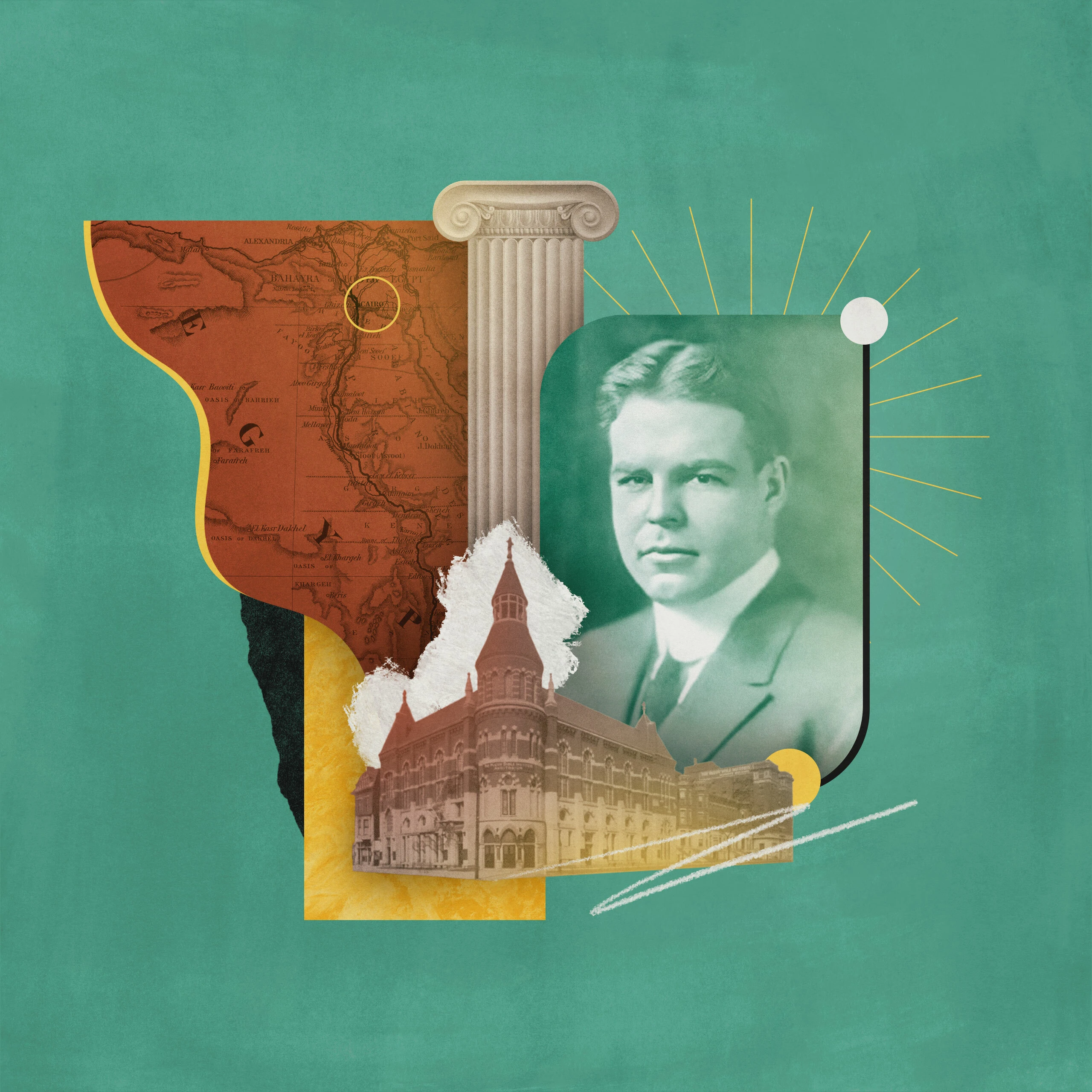Who Was William Whiting Borden?

D.L. Moody’s oft-quoted statement, “The world has yet to see what God can do with a fully consecrated man,” rang true of a young man who grew up in the church Moody founded. William Whiting Borden, a young pastor and missionary whose life was tragically cut short as he prepared to go minister among the Chinese Muslims with China Inland Mission, was that “fully consecrated man” devoted to serving the cause of Christ.
Born in 1887 as the fourth child to William (Sr.) and Mary Borden of Chicago, William Borden entered the world amidst opulence and affluence. His father’s successful and profitable business in the mining industry afforded the family a luxurious lifestyle, and William attended prestigious private schools in Chicago. Yet this affluent life did not deter the family or William from seeking after that which “neither moth nor rust destroys” (Matt. 6:20). They attended the Chicago Avenue Church, later known as Moody Church, and from a young age, William seemingly had a tender heart for spiritual matters. When his mother asked her children to write what they wanted to be when they grew up, William, age eight, wrote, “I want to be an honest man when I grow up; a true and loving and kind and faithful man.”
After graduating high school, Borden took a yearlong around-the-world trip. This global journey seemed to cast a vision and set his course for worldwide evangelism and missions. Once in college, he quickly became a prominent student at Yale as he excelled in the classroom, on the football field, and in friendship. His Ivy League years, however, were not wasted on self-indulgent revelries. Rather, he invested in ministry and service to his college and to the town of New Haven. During his freshmen year, Borden was approached about starting a city mission as a ministry to the downtrodden, which would also provide an opportunity for fellow classmates to serve outside the walls of Yale. He was more than eager to be of assistance in this mission, both providing the finances (equivalent to half a million dollars in today’s currency) and the administrative leadership to operate the mission. Yale Hope Mission, as it came to be known, annually served over seventeen thousand meals and provided over eight thousand nightly beds, with gospel messages preached daily to all who were assisted. Borden did all this while remaining one of the top students of his class and being elected as the president of his fraternity during his senior year.
After Yale, he attended Princeton Seminary in 1909 and took classes with esteemed professors such as J. Gresham Machen, B.B. Warfield, and Geerhardus Vos. Yet even in seminary, Borden was not so preoccupied with his studies that he ceased to be of service. He served as a director for the National Bible Institute in New York City, which focused on equipping men and women with a solid understanding of the Bible, theology, and practical ministry skills, including daily open-air preaching and four rescue missions. Borden also served as a trustee of Moody Bible Institute, which required frequent trips back home to Chicago. His studies and practical ministry made Dr. C.R. Erdman, one of his professors, say of him, “[William] graduated with honor from Yale and from Princeton; and was counted one of the best-equipped men that has ever started for the foreign field.”
The foreign mission field was Borden’s aim and focus, and to that end he was ordained into the gospel ministry.
The foreign mission field was Borden’s aim and focus, and to that end he was ordained into the gospel ministry at a service in Moody Church in 1912. However, before leaving, Borden spent that fall traveling to numerous colleges to speak to students about the need and opportunity of foreign missions. His zeal and dedication for the work of the Lord, along with being called by many the “millionaire missionary,” drew many and made a lasting impression as he pressed upon the students to prayerfully consider what part they might play in expanding the kingdom of Christ around the world. As one student at the University of Virginia stated, “The most helpful and biding feature of his visit was the quiet pervading influence of his personality, and of a life consecrated to the Master’s cause.” His tour of thirty-four schools across multiple states in seventy-six days—without the convenience of modern transportation—was quite a logistical and inspirational feat.
On December 17, 1912, William Borden said goodbye to friends and family and boarded a ship setting to sea from New York Harbor. His travels took him to Cairo, where he was spent a year in Arabic and Islamic studies and rented a modest room from a Syrian family to be better immersed within the culture. Wherever he went, Borden brought with him his dedication to study, desire to serve, and deep friendship with the Armenian and Coptic Christians, as well as American and British missionaries. As the director of the study center said of Borden:
I never saw a man come to Egypt with eyes more open to see the kingdom of God. . . . Borden had not been in Cairo two weeks before he organized students of the theological seminary to begin a house-to-house canvass with Christian literature for the whole city, with its eight hundred thousand people.
After Cairo, Borden’s plans were to spend a year in London to learn medicine so that he could minister to the needs of both body and spirit upon the mission field. But he never left Cairo. After only a few months in Egypt, William Borden contracted spinal meningitis, and though he fought it valiantly for over two weeks, he died at the age of twenty-five on April 9, 1913, just four hours before his mother and sister were able to arrive from the U.S. He was buried in Cairo as countless tributes poured in from around the world of his inspiration and dedication. One such tribute stated the thoughts of many: “William Borden has lived two lives in one; for he has done more in twenty-five years than many men accomplish in fifty.”
William Borden’s unfulfilled dream of ministering with China Inland Mission among the Chinese Muslims will be forever shrouded by divine mystery, yet his “duty of consecration,” as one of his seminary professors put it, still shines forth a century later. Expressing his commitment, Borden wrote, “With no reserve and no delay, with all my heart I come,” which served as a guiding motto for how Borden lived his life. His biographer later encapsulated that statement with the widely remembered phrase that defined William Borden’s life: “No reserves, no retreat, no regret.”
The concluding stanza of Isaac Watts’ “When I Survey the Wondrous Cross,” sung as the final hymn during Borden’s ordination, aptly summarizes this young man’s life and heart, who forsook the riches of this world for the riches of Christ:
Were the whole realm of nature mine,
That were a present far too small;
Love so amazing, so divine,
Demands my soul, my life, my all.
This article is part of the Missionary Biographies collection.


